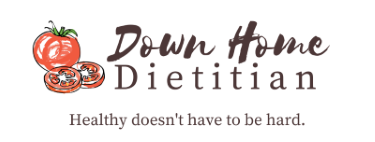Why is it that the Heart Healthy diet recommendations limit sodium? It’s highly unfortunate, as sodium is ever so tasty in many applications including (but not limited to) flavorful broths, crunchy kettle chips, and spicy sausage. Those are just a few of my personal high-sodium loves. Limiting sodium is tough for me because I can really go to town on the stuff. I’m not big on sweets – I can stay away from candies and pastries for the most part but put me near a good cracker with sharp cheese or salty chip and you have to fend me off with a stick. Limiting sodium can be a challenge. So what’s the benefit of doing it?
Research studies have shown that a lower sodium or sodium chloride (table salt) intake was associated with significantly lower blood pressure in adults with normal, slightly elevated, or high blood pressure. In most studies, “high sodium intakes” ranged from 2400-4800 mg per day while “low sodium intakes” ranged from 440 (holy low sodium!) to 2640 mg per day (Some study examples: Bray, 2004; Coruzzi, 2001; Geleijnese, 2003; He, 2004). You may wonder why sodium makes a difference in blood pressure. You are wondering, aren’t you? Of course you are.
Well surprise, surprise, it’s complicated! Bodies are complicated. The primary explanation is due to sodium’s role in directing how much fluid the body holds on to. Generally I explain it this way: Sodium and water are friends. Wherever sodium goes, water goes too – linked arm-in-arm with charged chemical attractions (oo la la!). So when we eat a lot of sodium (hello, pizza binge), our body holds on to a lot of water to hang out with it (hello, puffy bloat body). Some people notice the extra water because their feet, ankles, face, or belly swell with it. Some people can’t even tell it’s on board.
Either way, all this extra water has to move around the body to get filtered and whatnot. Guess whose job it is to move it? Your heart! Poor heart is pumping blood through the hoses of your veins and you’ve just increased the volume he has to move. His best response is to create more pressure to push all that extra fluid around to get rid of it. So, he pumps even harder and your blood pressure rises. That’s rough on him, as well as all of your hoses because in some places in your body (like your eyes and kidneys for example), your body has leeeeetle, tiny hoses that don’t respond well to pressure. Think fire hose pressure in your little green garden hose. Not a good match.
The goal of the Heart Healthy diet in limiting sodium is to keep blood pressure within healthy ranges for your heart and blood vessels. Now, as with everything in the realm of nutrition, there is debate about this. A few studies have recently been published that throw some doubt into the mix about the role of sodium in blood pressure regulation.
One such study by NutriNet-Santé found that sodium intake alone was not related to an increase in blood pressure, but rather found that the ratio of sodium intake to potassium intake was a much stronger predictor. Potassium is known as a helpful regulator of high blood pressure and foods high in potassium (like fruits and vegetables) are commonly promoted in diets recommended to lower blood pressure. Interestingly, I’ve been having a heck of a time meeting my potassium goals on this diet. More fruit! More vegetables!
There have been other studies that have suggested a notion of “salt responders” – people whose blood pressure is affected by their sodium intakes vs. others whose is not.
More research to come I hope! But overall, that’s a quick look at why we watch sodium as a contributor in the realm of promoting strong, healthy, not overworked hearts. Come back soon for ideas on how to cut sodium without sacrificing flavor (and joy)!




